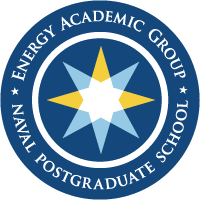NPS Hosts Black Sea Energy and Security Symposium - Energy Academic Group

Symposium in-person attendees at the Naval Postgraduate School on January 25, 2022.
NPS Hosts Black Sea Energy and Security Symposium
By Tahmina Karimova Faculty Associate – Research, Energy Academic Group
and LCDR Edward Early, Naval Postgraduate School, Office of University Communications
Diplomats from nations bordering the Black Sea and Caspian regions joined U.S. officials and energy security experts for a symposium at the Naval Postgraduate School (NPS) on January 24–25 to discuss a greater need for global energy security, especially in the vicinity of the Black Sea.
The event, titled “Energy and Security in the Black Sea,” was conducted under the auspices of the NPS Energy Academic Group (EAG), with participants attending in person and via remote means. The focus of the symposium was to analyze the major issues affecting energy and security in the greater Black Sea region, as well as to discuss U.S. national security objectives and examine policies that can support U.S. and allied partner regional objectives.
“The security of the world’s energy sources is important not just to the United States, but to energy producers and consumers everywhere,” said the president of NPS, retired Vice Adm. Ann E. Rondeau. “We are honored to be able to host this conference, and we hope that this gathering further underlines the important role NPS plays in educating world leaders and building enduring relationships around the globe.”
As major sources of energy and energy transit, the Black Sea and adjoining Caspian regions have a significant impact on global energy security and particularly European energy security. These regions are also focal points of strategic competition involving the United States, Russia and other nations in the area. Developments in the Black Sea can affect freedom of navigation in the strategic waterways which transit the area.
Joining NPS leadership, faculty and students were three diplomatic representatives from the Black Sea region – Ambassador Khazar Ibrahim of Azerbaijan, Deputy Chief of Mission Sinan Ertay of Turkey and Deputy Chief of Mission Giorgi Tsikolia of Georgia. Other participants included Erika Olson, Deputy Assistant Secretary of State for Southern Europe and the Caucasus, and Andrew Winternitz, Principal Director for Europe and NATO Policy in the Office of the Secretary of Defense (OSD), as well as representatives from the NATO School Oberammergau and the NATO Energy Security Centre of Excellence in Vilnius, Lithuania.
Dr. Dan Nussbaum, EAG chair, described the event as one of the many successful collaborations involving NPS, partner organizations and regional stakeholders. Nussbaum noted that events such as the symposium could ultimately provide more opportunities for further collaboration between NPS and outside organizations, using interdisciplinary research, education programs and outreach efforts to bring together warfighters, scholars, subject matter experts, diplomats and partners, and industry leaders.
One of the highlights of the symposium was a keynote address by former Secretary of Defense Leon Panetta, chairman of The Panetta Institute for Public Policy at California State University Monterey Bay. Panetta emphasized the important role partners and alliances play – not only in a general sense, but specifically in the Black Sea region and the Caucasus when it comes to energy and security, energy corridors, and military and security cooperation, as well as sea transit routes between the West and Central Asia.
Panetta also emphasized the criticality of alliance unity and stronger deterrence posture in the face of challenges from near-peer adversaries and other regional powers around the world. Furthermore, he underscored that history lessons teach us that the policy of “isolationism is dangerous” and that the U.S. “cannot withdraw from its responsibility to the world as our security and security of the world is at stake.”
“The current energy crisis in Europe is not a crisis due to energy shortages, but it is a crisis caused by policy,” said Dr. Brenda Shaffer, who moderated closed-door discussions at the symposium.
“Over the years, Washington has viewed the Black Sea region as an important security arena. Washington has also promoted European energy security through shepherding Caspian gas into Europe. This policy has benefitted from wide bipartisan support over the decades and has been a concrete success. Areas today in Europe, such as Italy, that benefit from these projects that the U.S. championed, are coping with the current energy crisis much better than those without access to pipeline supplies.”
Learn more
To learn more email Tahmina Karimova at ttkarimo@nps.edu
Quarterly Newsletter
Surge is published quarterly by the Energy Academic Group and covers a divese range of energy-related topics. View archive

